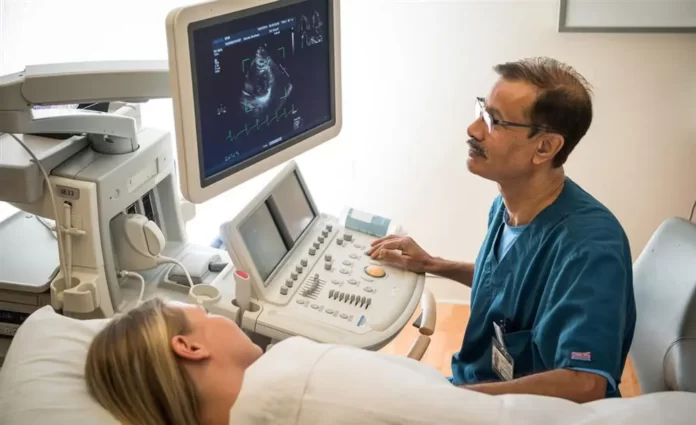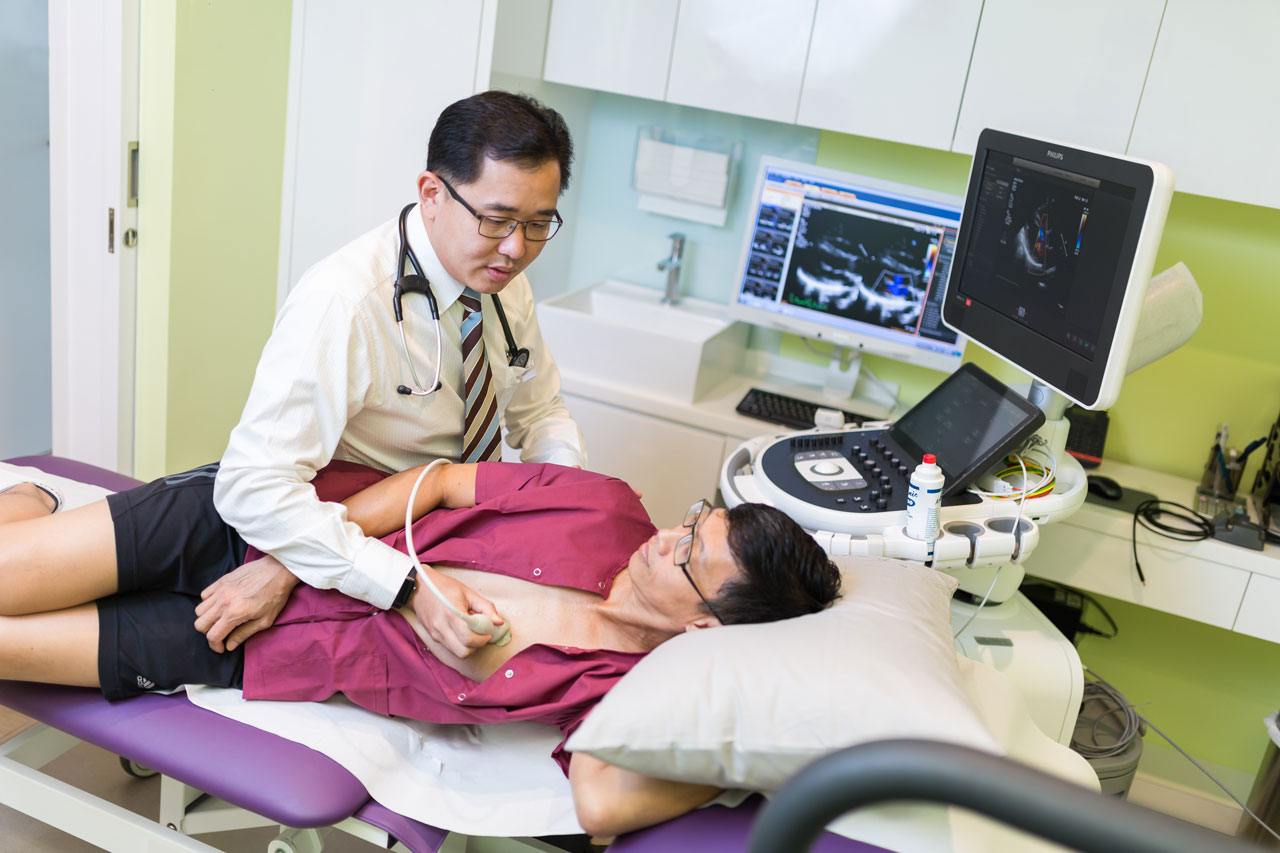Sydney, which is one of the major cities in Australia, is home to some of the most highly trained cardiologists in the whole globe. In this dynamic metropolis, there is no shortage of highly qualified individuals, so whether you are seeking a specialist in heart disease, arrhythmia, or any other kind of cardiac ailment, you won’t have any trouble finding someone to assist you. However, with so many possibilities, how do you go about selecting the best cardiologists in Sydney to meet your requirements? In this all-encompassing guide, we will discuss the most important aspects to take into account when choosing a cardiologist in Sydney, and we will provide a full review of the most cutting-edge cardiac diagnostic tests that are now on the market.
Choosing the Right Cardiologist in Sydney
There are several important considerations to consider before deciding on a cardiologist to see in the Sydney area. The following are some of the most notable elements to search for:
- Board Certification
It is of the utmost importance that you establish whether or not your cardiologist has board certification. This indicates that they have completed challenging examinations and have exhibited an in-depth understanding of the subject matter. The Royal Australasian College of Physicians is in charge of overseeing the board certification process in Australia (RACP).
- Experience
When looking for a cardiologist, one of the most important qualities to look for is experience. A physician with a great deal of expertise will not only have a deeper comprehension of your problem, but they will also be capable of delivering more precise diagnoses and courses of therapy. Try to choose a cardiologist who has been working in the field for a good number of years and who has a solid reputation among other medical professionals. You may inquire about suggestions from your primary care physician, or you could examine internet reviews written by individuals who have used the service.
- Hospital Affiliation
It is also essential to take into account the cardiologist’s relationship with a certain hospital. While some cardiologists work in their own private offices, others are linked with big institutions that are well-regarded for their medical care. When choosing this matter, you should give thought to your requirements and preferences. For patients who need access to modern diagnostic technology or specialist therapies, the best option may be to find a cardiologist who is linked with a big hospital.
- Availability and Communication Style
You should think about the cardiologist’s availability as well as their approach to communication. You want someone easy to get in touch with and quick to respond, as well as someone who will take the time to hear out your problems and provide you with answers. While some cardiologists choose to adopt a more hands-off approach while caring for their patients, others take a more active role in their patient’s treatment. Find someone whose communication style is compatible with yours and who can make themselves accessible to visit you in a timely way.
 Advanced Cardiac Diagnostics Sydney
Advanced Cardiac Diagnostics Sydney
Following the conclusion of your search for a cardiologist who is a good fit for your requirements, the following step is to submit yourself to a thorough diagnostic examination. Your cardiologist will be better able to grasp the underlying cause of your symptoms and deliver an appropriate diagnosis as a result of this information. The following are some examples of the more sophisticated cardiac diagnostics Sydney procedures that cardiologists in Sydney may choose to use:
- Electrocardiogram (ECG)
An electrocardiogram (ECG) is a test that does not need any surgical tests and examines the electrical activity of your heart. It may identify arrhythmias, heart attacks, and a variety of other disorders that affect the heart. The test just takes a few minutes, does not cause any discomfort, and may provide you with important information about the state of your heart.
- Echocardiogram
Echocardiography is a kind of ultrasound examination that creates pictures of the heart by using sound waves of a very high frequency. This test is used to assess the structure and function of the heart, including the size and shape of the chambers, the thickness of the walls, and the movement of the valves. Other aspects of the heart’s anatomy and function that may be examined include blood flow and electrical activity. Echocardiograms can diagnose a broad variety of cardiac diseases, such as heart disease, difficulties with the heart valves, and damage to the heart muscle.
- Cardiac CT Scan
A cardiac CT scan is a non-invasive examination that employs X-rays and computer technology to create comprehensive pictures of the heart and blood arteries. This test is also known as a cardiac computed tomography scan. Plaque accumulation in the arteries, which may be a precursor to heart disease, can be identified with the use of this test. In addition to this, it may be used to assess the amount of blood that is flowing to the heart, as well as any abnormalities that may exist in the heart or the blood arteries.
- Cardiac MRI
An MRI of the heart, also known as a cardiac MRI, is a non-invasive diagnostic procedure that employs magnetic fields and radio waves to obtain precise pictures of the heart and the blood arteries. This examination is used to analyze the anatomy and function of the heart, and it is very helpful in the detection of heart disease, damage to the heart muscle, and other disorders that affect the heart.
- Nuclear Stress Test
To create pictures of the heartbeat during a nuclear stress test, a diagnostic procedure, a nuclear stress test is performed by using a tiny quantity of radioactive material and a specialized camera. The purpose of the test is to determine the amount of blood that is flowing to the heart, as well as to identify any obstructions or anomalies in the blood arteries. The examination is carried out on the patient while they are either working out or taking something to speed up their heart rate.
Understanding Heart Health and Early Detection.
It is essential to know the importance of preserving a healthy heart and the part that routine examinations by a cardiologist play in the early diagnosis and treatment of cardiac diseases. The hub of your circulatory system is located in your heart, and it is the heart’s job to pump blood and oxygen to the other parts of your body. Abnormalities with the heart and blood arteries may develop over time as a result of bad lifestyle choices, heredity, and other factors. These problems can result in heart disease, heart attacks, and other disorders.
It is essential to know the importance of preserving a healthy heart and the part that routine examinations by a cardiologist play in the early diagnosis and treatment of cardiac diseases. The hub of your circulatory system is located in your heart, and it is the heart’s job to pump blood and oxygen to the other parts of your body. Abnormalities with the heart and blood arteries may develop over time as a result of bad lifestyle choices, heredity, and other factors. These problems can result in heart disease, heart attacks, and other disorders.
Several modifications in behavior, in addition to regular visits to the cardiologist, may help you keep your heart healthy.
- Consuming a diet high in fiber and low in saturated fat, such as the Mediterranean diet
- Doing regular exercise to help control weight and lower stress levels is essential for heart health
- Getting off of cigarettes may help you live longer and healthier lives by lowering your chance of developing cardiovascular disease and other illnesses
- Taking steps to alleviate stress using methods such as exercise, relaxation techniques, and talk therapy
- Maintaining healthy blood pressure and cholesterol level with diet and medicine
If you take care of your heart, you may lower your risk of heart disease and be physically active for many more years.
Conclusion
When it comes to finding the best cardiologists in Sydney, there are several important factors to consider, including board certification, experience, hospital affiliation, availability, and communication style. Once you’ve found the right cardiologist, you’ll undergo a comprehensive diagnostic evaluation, which may include advanced tests like an ECG, echocardiogram, cardiac CT scan, cardiac MRI, or nuclear stress test. By working closely with a highly skilled and experienced cardiologist, you can receive the best possible care for your heart health.
Related Websites
Articles on Blogseu
Articles on Blogspeoples
Articles on Thebigblogtheory
Articles on Allcityforums


 Advanced Cardiac Diagnostics Sydney
Advanced Cardiac Diagnostics Sydney